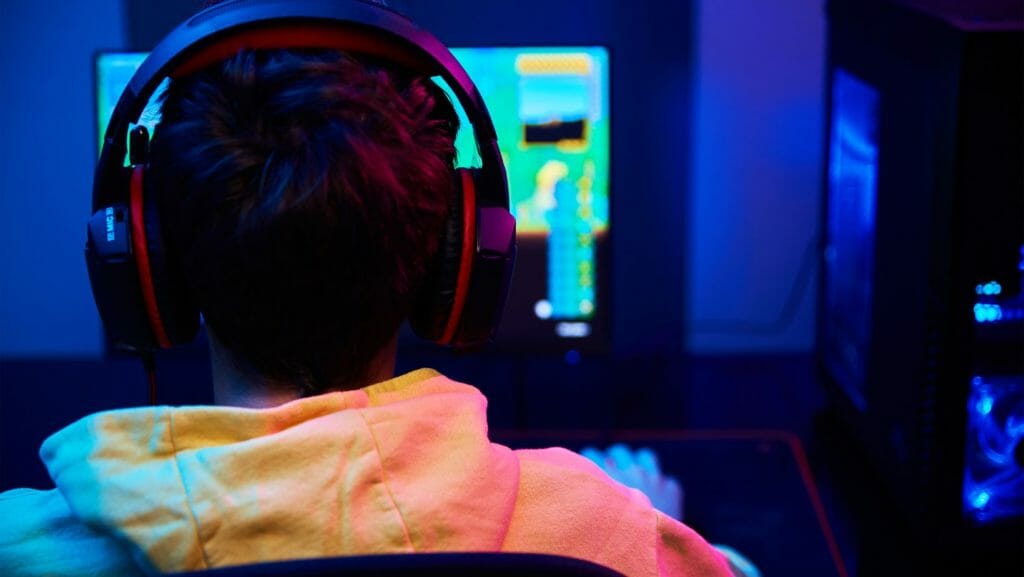The idea of just logging into PlayCroco Casino and finding a list of games to keep you engaged and entertained from the comfort of your home is exciting. Online and video games are life changer and have provided people with the option of enjoying games they love conveniently.
While that is the case, unfortunately, lagging is one of the biggest challenges gamers face when playing video games. It can be very frustrating when you are playing them in the middle of an exciting game, and then you start to experience freezing when you are supposed to take action, such as shooting.
Lagging does interfere with your experience and performance and can be frustrating. That is why you need to know what causes lagging and how you can prevent it.
1. Lower Latency
Delayed communication over a network can cause lagging. Latency is the time taken to process and decode data, and when there is high latency, network performance can be highly undesirable.
Many things can cause network latency. When the device connected to a network is far away from the servers, it will take more time to respond to requests. Low memory and CPU cycles can also cause latency. Physical issues in cabling also cause latency.
Your internet connection type could also be the reason behind latency causing lag when playing video games.
The goal should be to maintain a latency of below 100 as this will not cause lag. The best way to fix lag-causing latency is to use an ethernet cable if you notice a lag in your wireless connection. Note that wireless connections like Wi-Fi can have a higher latency than ethernet as they are susceptible to noise.
Updating your firmware and checking your system for malware can also help. If possible, you can also choose servers that are not far from your location.
2. Get the Right Internet Speed and Bandwidth
If you are using the wrong internet speed and bandwidth, you will experience a lag. Your internet plan should meet your consumption needs. If your gaming requires about 10 Mbps, and you get a 10 Mbps subscription from your internet service provider, and you connect close to ten devices, it may not be adequate.
Therefore, get adequate speeds and bandwidth for your browsing needs, and you will not struggle a lot with lagging.
Generally, it is recommended that you use about 25 Mbps for a smooth experience.
3. Update your Gaming Equipment
If you are close to the servers and have enough internet speed and bandwidth, but you are still experiencing lagging, the problem might be your equipment.
An upgrade on your gaming TV and thermal drivers can go a long way in providing you with relief from lagging. Do your research and get the right equipment for gaming with your gaming lineup in mind. Get a high refresh rate gaming monitor that will give you an accurate gaming experience.
4. Reducing in-Game Settings
You can optimize your gaming performance by removing in-game settings that you don’t need. This should, however, be the last resort after trying all the other strategies. Focus on the graphics settings, but expect to have grainier pictures after lowering them. This is why you are advised to do it as a last resort.
You can adjust the resolution and the AA to enhance your speed.
5. Replace your Router
Your old router could be the reason behind the frustrating lag you are experiencing when playing. Replacing your router could therefore solve the problem.
When routers get old, they lose their speed, reliability, and connection strength. Going for a gaming router is also a great idea as its features are tailor-made to meet your gaming needs.
For instance, their speed, ping rates, and latency are optimized for gaming.
6. Upgrade Your Internet Subscription
Upgrading your internet package is one of the most effective solutions to reduce gaming lag. If you have multiple devices or users in your home, then a 10Mbps connection may not be adequate when everyone is home.
Before deciding on a connection, evaluate your internet use needs and get a subscription that can cater to them comfortably. The type of games you play will also determine the strength of the internet and the speed you need.
Also, avoid internet service providers with a reputation for distributing unreliable internet connections. Go for one that provides ultrafast and unlimited internet speed if you want a smooth experience.
7. Close Background Programs
If you are gaming on a PC, closing background applications and websites that are not in use can reduce lag. Note that having Netflix, YouTube, and other websites can hurt your latency and ping rate.
In the same way, reducing the number of devices connected to your network can go a long way in helping you achieve low latency as it will increase your bandwidth. You can disconnect your smartphone, a laptop you are not using, or even your TV if you are not using it for gaming.

Conclusion
Lag when gaming can be frustrating and ruin your gaming experience. The good news is that it is usually a problem you can fix on your own. A few changes to bandwidth consumption, your internet package, and your hardware can help increase speed when gaming.


